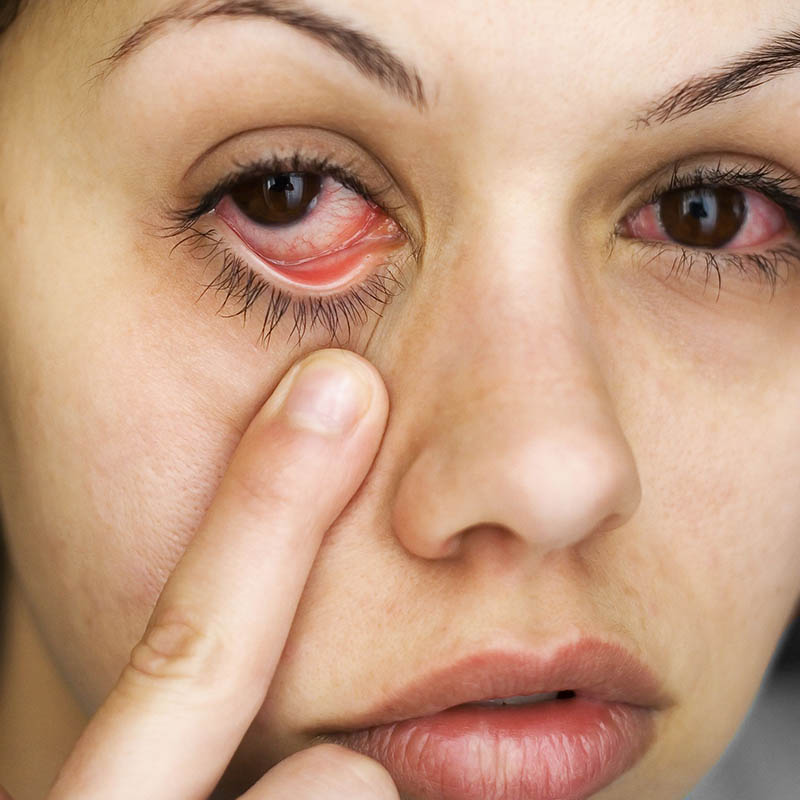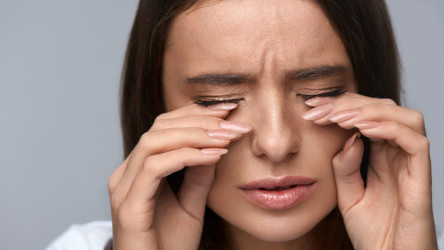When a normally controllable part of your body starts to twitch for no apparent reason, it can be a strange sensation. Sometimes, in some people, the eyelid seemingly takes on a life of its own. The eyelid won’t stop quivering or twitching no matter how hard you concentrate. What we call “eye twitch” is a muscle spasm that occurs in either the upper or lower eyelid. This spasm may be barely noticeable, or it may be irritating and troublesome. Most of us experience an eye twitch occasionally which resolves on its own. But if you experience eye twitching more often,It may be worth investigating.
Some possible causes of eye twitching are as follows.
Vitamin or Mineral Deficiencies
Some blame muscle spasms on nutritional deficiencies, such as a lack of vitamin D or vitamin B12. A deficiency of minerals or electrolytes such as magnesium or potassium is sometimes associated with twitches, cramping, and spasms. Include a variety of fruits and vegetables in your diet to prevent deficiencies that will set off your eye muscles.
Allergic Reactions
For people who suffer with allergies, the histamine release of allergic reactions can result in red, itchy eyes. Rubbing the eyes increases the irritation to delicate eye tissues. Treating allergies with antihistamines, steroid nasal sprays, and eye drops may help alleviate the trauma to the eyes that triggers eye twitching. Consult your physician if you experience persistent, uncontrollable twitching or any difficulty in moving your eyes or parts of your face.

Drowsiness and Fatigue
If you haven’t been getting enough sleep, the muscles of your eyelids are just as affected by fatigue as the larger muscles of your body. Prevent eye twitches caused by a lack of sleep by getting about seven to nine hours of sleep each night. If you find it difficult to fall asleep at night, prepare for sleep by dimming the lights and engaging in quiet activities before bedtime. Avoid drinking alcohol or eating heavy meals within two hours of bedtime. Include physical exercise in your daily routine and practice stress-relieving techniques to help you drift off to sleep at night.

Eye Strain
One result of spending too much time staring at computer screens is weakened and irritated eye muscles. One highly suggested tip for preventing eye strain from staring at screens involves the 20-20-20 rule. This entails looking away from your screen every 20 minutes to gaze for 20 seconds at an object at least 20 feet away. Other ways to protect your eyes when using screens include reducing glare and sitting an arm’s length away from the screen. Lastly, make sure your screen isn’t much brighter than the light in the room around you.
Smoke
Smoke from wood-burning stoves or open fires can dry out and irritate the eyes. Also, if you are often in the company of smokers, second hand smoke can have the same effect. . Smoking tobacco yourself adds the negative effects of smoke and nicotine on your organs. Smoking not only affects your lungs and blood vessels but also affects the muscles and tissues of your eyes. If you suffer with dry eyes and eye twitching, avoid situations in which you are exposed to smoke. If you are a smoker, employ techniques to break the smoking habit and improve your health.
Dry Eyes
Dry eyes can contribute to eye twitching. Dry eye can be caused by many factors. These include a decreased production of tears, an increase in the evaporation of tears, and changes in the composition of tears. Tear production may decrease in individuals over the age of 50. Additionally, autoimmune disorders such as diabetes, Sjogren’s syndrome, and thyroid disorders may decrease your body’s ability to manufacture the tears needed to keep your eyes properly moist. Schedule a visit with your doctor if you suffer from red, painful, irritated eyes in order to determine the underlying cause.
Benign Essential Blepharospasm
Benign essential blepharospasm (BEB) refers to a neurological condition in which the muscles of the eye undergo chronic spasms and contractions. According to the National Institute of Neurological Disorders and Stroke, this rare disease can progressively worsen until the patient suffers from an inability to open his or her eyes for extended periods of time. Treatment for this condition may include Botox injections to prevent the muscle contractions that interfere with a patient’s vision.
Eye twitching may be an occasional occurrence that is harmless or it may also be a symptom of some underlying problem. It is always better to see a doctor whenever you have any worrying symptoms.









